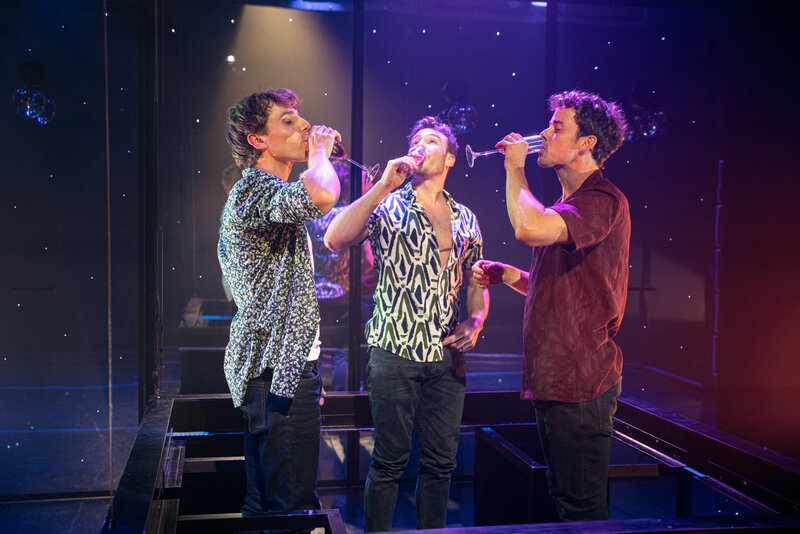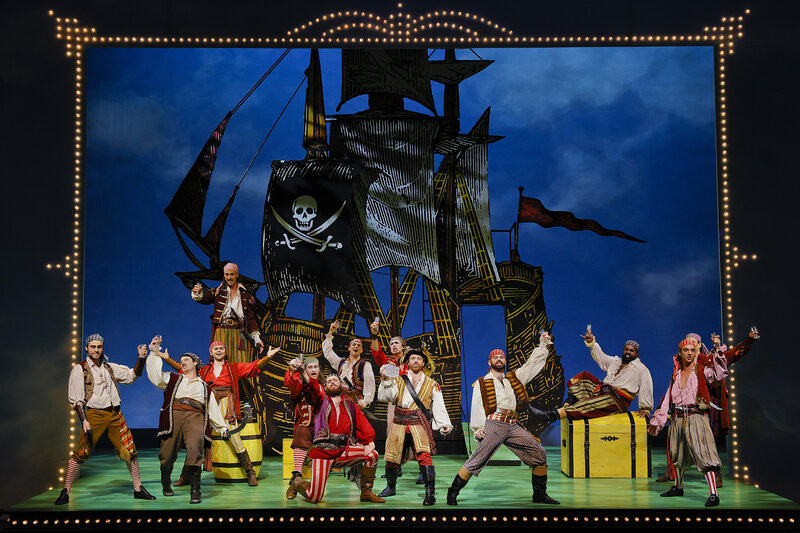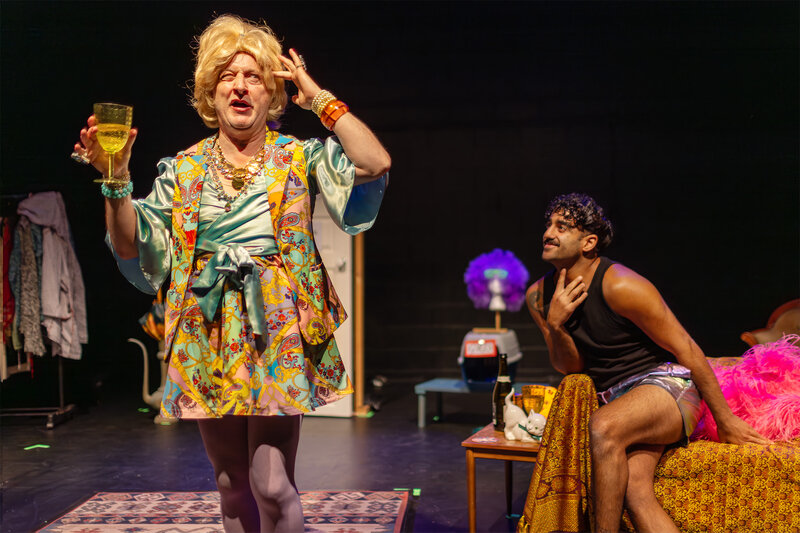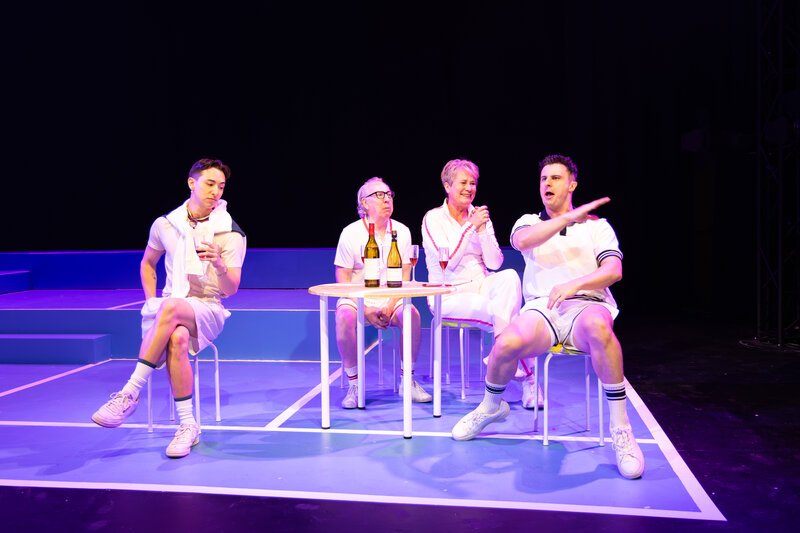I think I like adaptations rather than translations – especially from Russian and German. Turgid prose tends to translate to turgid prose.
Daniel Evans is good at the adaptation business – Oedipus Doesn’t Live Here Any More is a good example and this one bears his unique in-your-face style, with bad language, lots of smoking, great comedy, and a good sprinkling of sex. He writes with understanding too; two of the protagonists are playwrights so his own experiences slip in and out of the dialogue with some glib modern lines about the pitfalls of the creative mind.
 It is a big show – it runs for two hours 20 and has a cast of ten. The original setting for the play is a country estate in Russia but Evans has moved it to a large house in a small Australian lakeside town (seagulls will forage for food anywhere) where the characters live or are visiting. This move changes the conception of the play, but even with Aussie accents and injections of local humour and events there is no disguising the extreme sombre Russianness of the script. The tortured souls, forged in the dark Russian winters, can’t be disguised by jokes and flip comments.
It is a big show – it runs for two hours 20 and has a cast of ten. The original setting for the play is a country estate in Russia but Evans has moved it to a large house in a small Australian lakeside town (seagulls will forage for food anywhere) where the characters live or are visiting. This move changes the conception of the play, but even with Aussie accents and injections of local humour and events there is no disguising the extreme sombre Russianness of the script. The tortured souls, forged in the dark Russian winters, can’t be disguised by jokes and flip comments.
With ten characters (with one gender change). many subplots and almost Shakespearean love tangles, it’s hard to get a grip on what’s going on at first, but slowly thanks to some fine acting from the ensemble cast, the dust settles and we knew who was who; who loved who; who didn’t love who and how brittle egos were in this fairly dysfunctional family.
The house is owned by Sorin, a man with (I think) advanced Alzheimer’s. His sister is the ageing actress Irina Arkadina, who has arrived for a weekend visit with her lover, the writer Trigorin. Sorin, played by Brian Lucas is mad as a hatter and brings some huge laughs from the audience. But then, in the first act, laughs roll in aplenty as all the unrequited lovers chase each other and the family fight among themselves. Arkadina’s son, Konstantin is a would-be playwright who is very avante garde in his writing. His new play is produced on a makeshift stage in the garden. It stars himself and Nina, a young woman who lives near the lake. His traditionalist mum thinks the play is rubbish and interrupts until Konstantin cuts the play short and storms off.
Now here is a true melancholy Russian who is madly in love with the 16-year Nina, hates his mother, and is doomed to artistic depression and failure. It was a solid performance from Nicholas Gell. He was the one who accidentally shot the seagull of the title and given it to Nina as a declaration of his love. Nina, played with delightful innocence by Emily Burton, has pretension of becoming a famous actor and is completely infatuated with the suave seducer, Boris Trigorin, played enigmatically by Jason Klarwein. The bird spends the rest of the play in a plastic bag in between silences and chats with Sorin.
Barbara Lowing was cast as Ilya, the wife of the estate manager (originally a male role) and Helen Cassidy is Polina, (originally Ilya’s wife). Then we had Amy Ingram as the droll and very funny Masha, Ilya’s daughter. She is pursued by the local schoolteacher and guitar player Medvedenko, played by Lucas Stibbard, but is madly in love with Konstantin. They were a nicely balanced pair of disgruntled lovers. Finally we had the kindly doctor, a nicely sympathetic performance from Hugh Parker and the marvellous Christen O‘Leary as the overbearing, over-the-hill Irina.
The second act switched mood instantly from caprice to elegy as doom and gloom hits the fractured family and no one gets a happy ending. There’s a particularly moving scene though with Nina and Konstantin, which was about the best of the night.
There is a lot to enjoy in this production, but you need your wits about you in the first act, which I did think went for too long, to keep track of exactly who is doing what to whom.
Company: Queensland Theatre Company/Brisbane Festival
Venue: Bille Brown Studio, The Greenhouse, South Brisbane
Dates: 20 August – 26 September 2015
Eric Scott
For more of Eric Scott’s writings on theatre, check out Absolute Theatre

David Edwards is the former editor of The Blurb and a contributor on film and television




